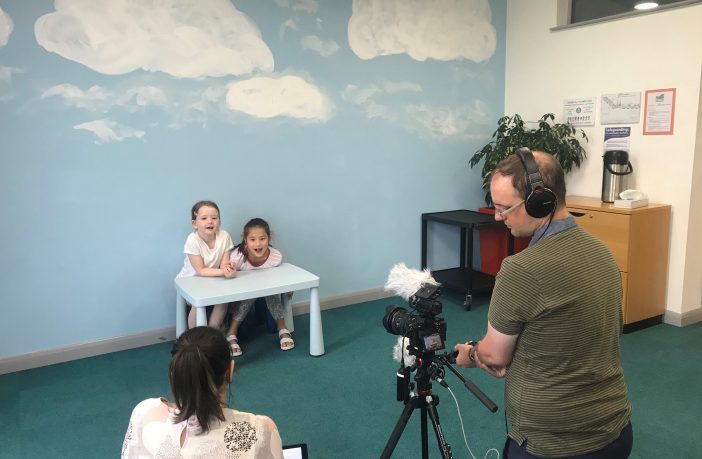Pupils from Long Meadow School in Milton Keynes recently shared their ideas and thoughts on the nature of a university when they met The Open University’s social media team.
 Their thoughts on Higher Education helped to kick off the University’s latest campaign #TomorrowsEd, looking at the Future of Education, how it will evolve and how academics see teaching developing in the next few decades.
Their thoughts on Higher Education helped to kick off the University’s latest campaign #TomorrowsEd, looking at the Future of Education, how it will evolve and how academics see teaching developing in the next few decades.
The campaign includes twitter polls, academics writing about how technology is changing our lives, articles on new research, insights into how the OU is using advanced techniques such as Virtual Reality and Augmented Reality in its teaching, and videos on social media channels.
The pupils of Long Meadow School had some insightful ideas about what a university is, with comments from the seven-year-olds including: “When you go to university I think first you need to write things down and then you can get a job” and “A university is like a really big building with lots of glass on it and it has solar panels. And the professors…have a bowtie and glasses and smart suits.”.
Assistant Head Teacher Emma Kidd said:
It was a wonderful experience for the children to be filmed by the OU and to get them thinking about their future education and what that might look like. All children found the morning engaging, enjoyable and fun! We are very grateful to the OU for including us in their campaign.
Take a look at the campaign, #TomorrowsEd
And if you’ve missed any of the highly enlightening exerts from the schoolchildren involved, here’s the complete series for you to look back on:
How old do you have to be to go to University?
Can you study and work at the same time?
Do you want to go to University?
What do you want to be when you grow up?
How do you make friends at University?
What does a University Professor look like?
What does a University look like?



